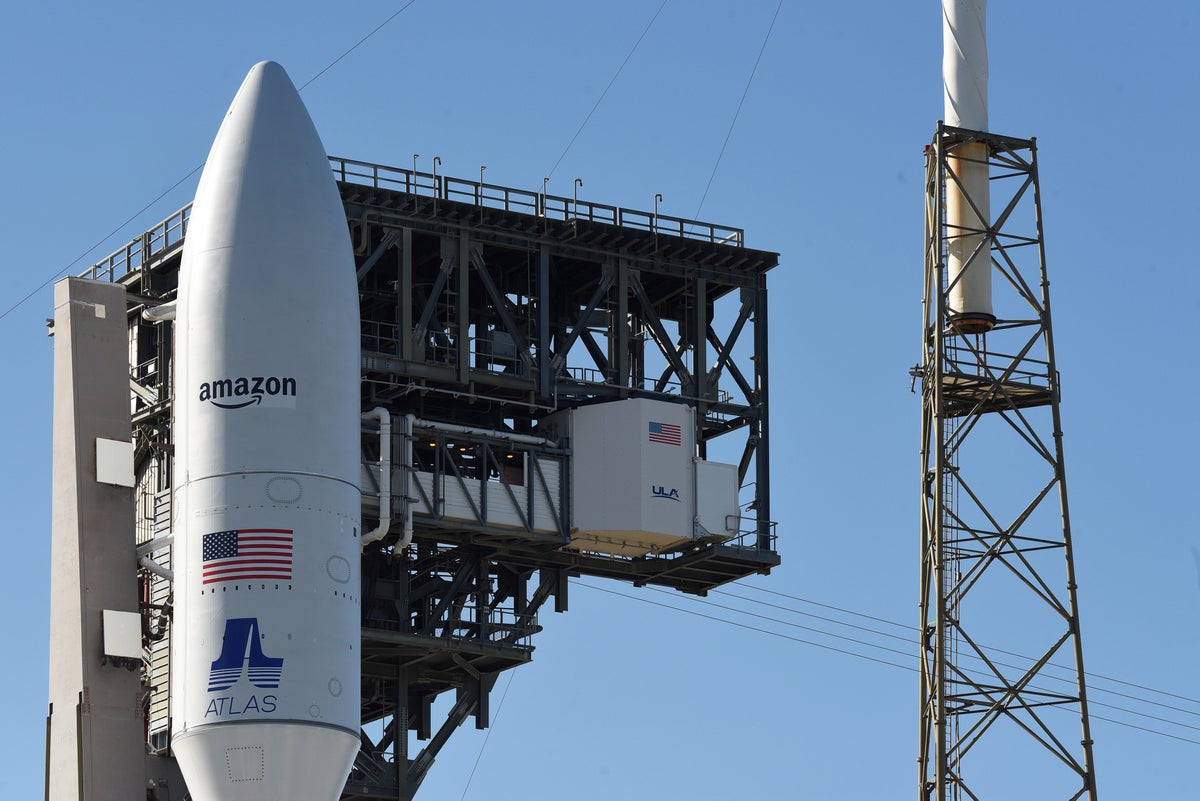Amazon’s Project Kuiper Launches First Batch of Satellites, Aims for Global Internet Service
Amazon successfully launched its first 27 Project Kuiper satellites, kickstarting its competition with SpaceX’s Starlink for global satellite internet access.
Overview
Amazon's Project Kuiper has launched its first 27 satellites aboard a ULA Atlas V rocket, paving the way to compete with SpaceX's Starlink, which has over 8,000 satellites. The satellites will provide high-speed internet, focusing on underserved areas, and Amazon plans to deploy over 3,200 by mid-2026. The company has faced production challenges but aims for more launches this year. While astronomers express concerns over satellite congestion, Amazon's CEO Andy Jassy emphasizes this initial step as part of a larger journey to revolutionize global internet access.
Report issue

Read both sides in 5 minutes each day
Analysis
- Amazon's Project Kuiper aims to create a constellation of 3,226 satellites for global internet coverage, beginning with the recent launch of 27 satellites into orbit.
- The rapid expansion of satellite constellations raises concerns about the potential for space debris and collisions, emphasizing the need for regulatory measures as Amazon works through production challenges.
- Astronomers worry about the impact of satellite brightness on observations, but Project Kuiper has introduced coatings designed to mitigate this issue, demonstrating a commitment to balancing technological advancement with scientific integrity.
Articles (7)
Center (2)
FAQ
The ULA Atlas V 551 configuration featured five GEM-63 solid rocket boosters, a 5.4-meter medium payload fairing, and a Russian-made RD-180 engine. It delivered the satellites to a 450 km initial orbit before they ascend to their operational altitude of 630 km.
Project Kuiper aims for over 3,200 satellites, while SpaceX's Starlink already has over 7,200 operational satellites and continues rapid expansion with 31 launches in 2025 alone.
While specific challenges aren't detailed in available reports, the article notes production hurdles likely related to scaling satellite manufacturing and meeting a mid-2026 deployment target for the full constellation.
Amazon plans over 80 launches to deploy the full constellation by mid-2026, using both Atlas V and Vulcan rockets under the largest commercial launch agreement in history.
Astronomers warn that mega-constellations like Kuiper could exacerbate light pollution and orbital congestion, though the article doesn't detail specific mitigation measures Amazon might be implementing.
History
- 7M

 4 articles
4 articles





